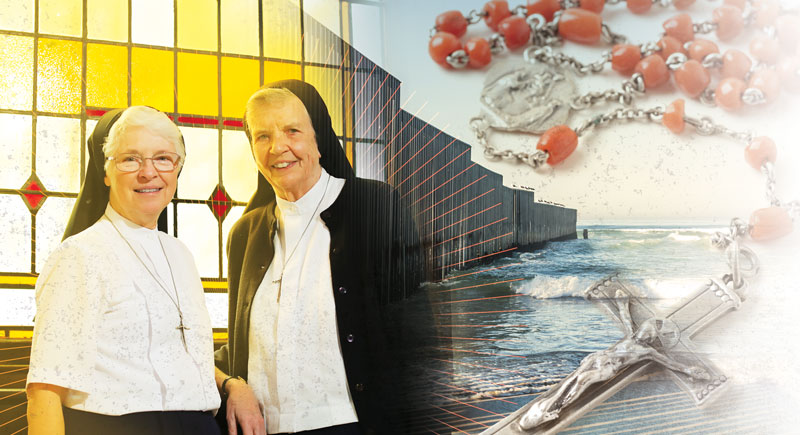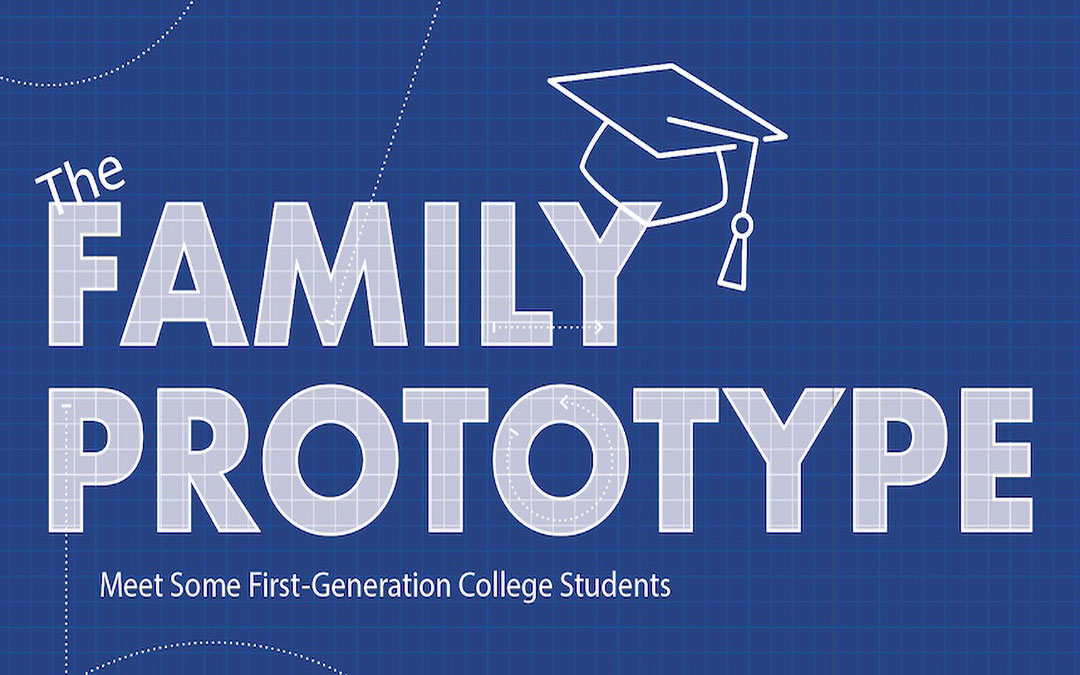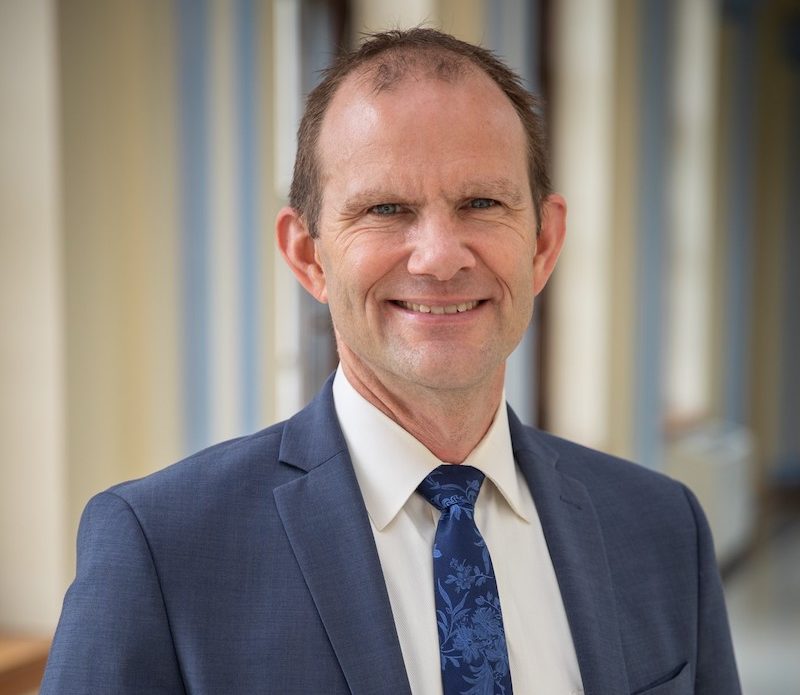It was just a former Ramada Inn in near disrepair, but the families living in the rooms that once housed tourists and business travelers had spent their life savings and risked their lives to come to the U.S. Middle- and lower-middle-class citizens from Latin America sold whatever possessions they owned and paid off gangs to avoid being robbed. Then they paid exorbitant amounts of money to make their way to the Mexican and U.S. border to seek asylum in America.
Once they arrive in the U.S., asylum-seekers must turn themselves over to the border patrol, as this is the legal way to enter the U.S. and begin the lengthy and arduous process of becoming U.S. citizens.
ASYLUM-SEEKER
Amnesty International defines an asylum-seeker as a person who has left their country and is seeking protection from persecution and serious human rights violations in another country, but who hasn’t yet been legally recognized as a refugee and is waiting to receive a decision on their asylum claim. Seeking asylum is a human right. This means everyone should be allowed to enter another country to seek asylum.
Sister Annette Pelletier, IHM, Ph.D., professor of theology at Immaculata, explains that an “asylum-seeker” is a technical term used by the U.N. to grant certain rights to individuals who fear for their lives and livelihood in their home country.
To help these people, Sister Annette and Sister Francis Xavier McGeown, IHM, an administrative assistant at Camilla Hall, flew to El Centro, California, which is seven miles from the Mexican border. They joined staff members from Catholic Charities of the Diocese of San Diego and continued the work started earlier last summer by other IHM Sisters and various agencies to provide health screenings for the asylum-seekers and place them with relatives in the U.S.
When the Sisters arrived, they did not know what to expect. Sister Annette acknowledged that her general understanding of the situation facing asylum-seekers came from the media. Because both Sisters taught in Peru, their fluency in Spanish proved to be invaluable.
The people that the Sisters assisted astounded them. “I never expected to see families with little kids,” Sister Annette admitted. She saw infants and children who were only 7 or 8 years old. The Sisters surmised that these families wanted their children to grow up in an environment that would not be dominated by disease and the extreme violence that is typical in Venezuela and some other Latin American countries. When Sister Annette asked one dad why he entered the U.S., he simply replied that he refused to let his daughter grow up in an area with trucks full of gang members or military with guns who must be paid bribes to keep his family safe.
“It’s a complete break-down of society,” Sister Annette acknowledged of the areas that are the worst off. “It’s a sign of the fragile economics, health systems and political structures that cause families to seek asylum. If you’re not paying people off to defend you, then you are likely to be robbed. Sometimes the food rationing means you can’t get food because you’re not paying someone,” she said. Evidently, many of the families had to pay a “coyote” (someone who smuggles families across the U.S. border). After enduring a treacherous trek across the desert in extreme heat—often walking days, if not weeks—this was just the first part of their journey.
When the refugees finally crossed the border into the U.S., officials from immigration and border patrol completed documents for each of them. The first line required each person to state that he or she had been apprehended by the United States Border Patrol and was being released on his or her own recognizance. The document provided a date and location that the asylum-seekers would have to appear at federal court to petition for their case for asylum to be heard. They would need a lawyer to plead their case. They were also forbidden to work while in the U.S. or they would be deported immediately. Sister Annette noticed that border patrol agents fitted as many of the asylum-seekers as they could with ankle tracking devices so they could be traced if they did not show up for their court date.
After processing at the border, those seeking asylum boarded windowless border patrol vans and were brought to El Centro for the next steps in the process. Half of the main conference room of the Ramada Inn is devoted to the California Department of Health, who conducted health screenings, including COVID-19 tests. If the asylum-seekers tested negative for COVID-19, they received a vaccine, and other medical care. Catholic Charities occupied the other half of the room where their staff assisted the asylum-seekers in contacting family members or sponsors who provided either airline tickets or bus fare to reunite with their families in the U.S.
After their health screenings, they picked up donated clothing and toiletries (shoes and diapers were in demand), and then they were taken to their room where they had to remain. Catholic Charities contracted with local restaurants to provide meals to the families, which were delivered to each room. Sister Annette explains that the families had 24 hours to contact their relatives or a sponsor to send them transportation to where they intended to stay.
The Catholic Charities staff organized transportation to local airports and bus stations for each family with information about what airport/airline they would be departing from the next day, and their record locator with their code needed to find their flights. Sister Annette and Sister Francis were charged with driving the van. By 8 a.m., the asylum-seekers (many with small children) boarded the 15-passenger vans to airports in San Diego, California or Yuma, Arizona. Each round-trip crossed miles and miles of desert—with few gas stations or rest stops.
“One thing I noticed was that the people were absolutely silent. That was such an eerie feeling,” Sister Annette reveals. “They are so shocked, so traumatized—they don’t talk. Even the little kids, they don’t cry. They are absolutely vulnerable.” At one point, Sister Annette and Sister Francis gave them all donated rosary beads and prayer cards. Sister Annette watched grown men clutching the rosaries. One woman admitted that she wasn’t Catholic, but she still wanted to keep the rosary.
At the airport, the Sisters had to get each family to their respective airline and go through security with them. Sister Francis stayed with the families whose flights weren’t taking off right away and Sister Annette accompanied the families scheduled to depart next. She communicated with the Transportation Security Administration (TSA) agents on behalf of the asylum-seekers and presented their immigration papers from the border patrol. After waiting for a special TSA agent to go through every single document, each person had a photo taken, and then they went to the general airport security scanners. There wasn’t much to scan; all they owned fit into one backpack.
Sister Annette admired their tenacity and compliance with all the red tape. She was impressed with the donations collected to help the asylum-seekers and the compassion and care shown by the staff of Catholic Charities, but she cannot help but wonder where these people are now. Did they make their court dates? Are their families still supporting them?
“The whole system depends on family members in the United States,” Sister Annette states. “They want their family members to come here because, guess what?” she asks. “They know what it’s like back home.”
Sister Annette hopes and prays that these people will be able to build a better life for themselves and their families.





